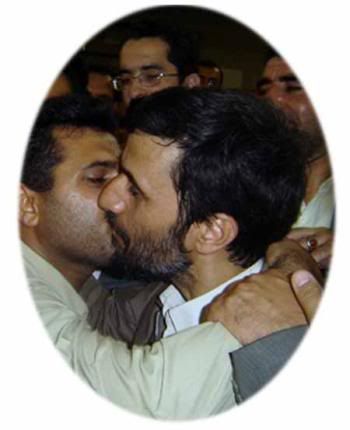The bogus story got wide circulation in part because the Simon Wiesenthal Center lent its cultural capital to it: "'This is reminiscent of the Holocaust,' [Chris] Wattie quoted Rabbi Marvin Heir, the dean of the Simon Wiesenthal Center in Los Angeles, as telling him. 'Iran is moving closer and closer to the ideology of the Nazis'" (Lobe, 22 May 2006):
The e-mail to Rabbi Abraham Cooper, associate dean of the Simon Wiesenthal Center, was urgent and pointed. The topic: explosive allegations that Iran, already seen as part of an "axis of evil" for its leaders' threats to Israel, denial of the Holocaust, and alleged drive for nuclear weapons, was replaying an infamous anti-Semitic theme from Nazi Germany.Some who are not familiar with the ideological orientation of the Simon Wiesenthal Center may wonder why it offered confirmation of a story that it couldn't possibly confirm.
"As per our conversation, I'm looking at running this," wrote the newspaper editor of the article he'd just received, "but I have not been able to confirm its veracity. Particularly, I want to make sure that part saying Jews will have to wear a yellow stripe and Christians a red stripe is, in fact, true."
Rabbi Cooper's reply, e-mailed back last Thursday, one hour and 14 minutes later, was unequivocal and succinct:
"Dear John," he wrote, "The story is absolutely true." (Larry Cohler-Esses, "'Yellow' Journalism!!: Anatomy of a Hoax: False Story Alleging Special Yellow Insignia for Iranian Jews Spurred by Wiesenthal Center's Flawed Confirmation," The Jewish Week, 25 May 2006)
Well, the home page of the Simon Wiesenthal Center Web site proudly features the story of Israeli Prime Minister Ehud Olmert's 24 May 2006 speech applauding the US Congress for "the strong bipartisan conviction that a nuclear-armed Iran is an intolerable threat to the peace and security of the world," hailing "the Iran Freedom and Support Act," and arguing that "[i]f we don’t take Iran’s bellicose rhetoric seriously now, we will be forced to take its nuclear aggression seriously later," the speech which received no fewer than 16 standing ovations from the US Congress. That just about says it all, but there's more.
Kenneth R. Timmerman -- the Executive Director of the Foundation for Democracy in Iran (FDI), an organization at the forefront of the campaign for regime change in Iran -- was commissioned by the Simon Wiesenthal Center to write propaganda against Iran, Libya, and Syria: "A ground-making study on the unconventional weapons programs of Iran, Libya, and Syria, commissioned by the Simon Wiesenthal Center in 1992, won applause from Democrats and Republicans alike," as he boasts on his own Web site. So, it's been a long-standing campaign for both Timmerman and the Simon Wiesenthal Center.
Iran -- the only nation in West Asia and North Africa modern enough to be a credible contender for regional leadership and yet, unlike Egypt and Jordan, is not quite sold on America and Israel -- sure is a far larger prize than Iraq for Washington and Tel Aviv, which no doubt long for the second coming of the Shah . . . and for all who make a living by supporting both.







